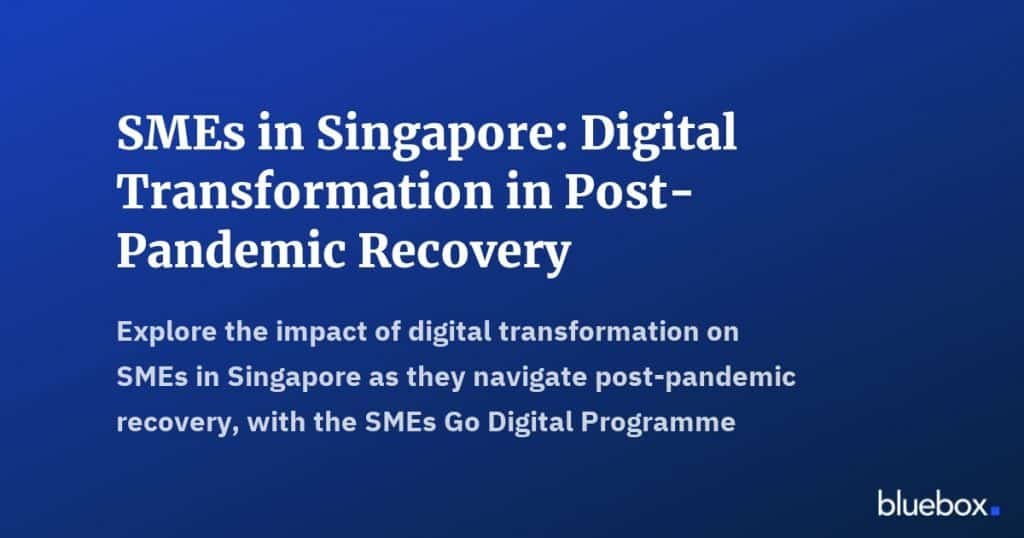In the wake of the global pandemic, small and medium-sized enterprises (SMEs) in Singapore have been forced to adapt and innovate to stay competitive. In this article, we will explore the trends for SMEs in 2023, focusing on post-pandemic recovery, the impact of the SMEs Go Digital Programme’s Pre-Approved Digital Solutions and Start Digital Pack, and digital transformation in the areas of Accounting, Finance, and Tax.
SMEs Go Digital Programme: Pre-Approved Digital Solutions and Start Digital Pack
The SMEs Go Digital Programme has played a crucial role in supporting SMEs in their digital transformation journey. Let’s analyze how the Pre-Approved Digital Solutions and Start Digital Pack have influenced the growth and competitiveness of SMEs in Singapore during the post-pandemic recovery.
Pre-Approved Digital Solutions
These solutions are designed to help SMEs adopt digital technologies and streamline their business operations. Some of the key benefits include:
- Improved productivity
- Enhanced customer experience
- Increased competitiveness
Case Study: A Retail Company
A local retail company, implemented a pre-approved Point-of-Sale (POS) system under the SMEs Go Digital Programme. This digital solution helped them manage inventory, track sales, and improve customer satisfaction, resulting in a 20% increase in revenue within six months.
Start Digital Pack
The Start Digital Pack provides SMEs with foundational digital tools and services, allowing them to kick-start their digital transformation journey. Some key features of the pack include:
- Accounting and finance solutions
- Digital marketing tools
- Human resource management systems
- Cybersecurity measures
Case Study: A Logistics Company
A local logistics company, utilized the Start Digital Pack to implement an accounting and finance solution, digital marketing tools, and a human resource management system. These tools helped them streamline their operations, improve efficiency, and reduce costs by 15%.
Digital Transformation in Accounting, Finance, and Tax
Digital transformation in the areas of accounting, finance, and tax has led to both challenges and opportunities for SMEs. Let’s discuss some examples and case studies from various industries.
Challenges
- Implementing new technologies can be costly and time-consuming
- Ensuring data security and privacy
- Training employees on using digital tools
Opportunities
- Streamlined and automated processes
- Enhanced decision-making through data-driven insights
- Improved compliance with regulatory requirements
Case Study: A Manufacturing Company
A local manufacturing company, adopted a cloud-based accounting software that automated their financial processes and provided real-time data insights. This allowed them to make informed decisions and improve their overall financial performance.
Successful Implementations of Digital Transformation
Many SMEs have adapted their business operations to leverage digital technologies in the fields of accounting, finance, and tax. Here are some successful implementations:
- A Services Company: Implemented a cloud-based tax management system, resulting in a 30% reduction in time spent on tax filing and increased accuracy.
- A Trading Company: Adopted an Artificial Intelligence (AI)-powered financial forecasting tool, leading to improved budgeting and financial planning.
- A Hospitality Company: Utilized a digital payment platform, enabling them to offer a seamless payment experience for customers and reduced operational costs.
In conclusion, the post-pandemic recovery and digital transformation in the areas of accounting, finance, and tax have presented both challenges and opportunities for SMEs in Singapore. The SMEs Go Digital Programme, with its Pre-Approved Digital Solutions and Start Digital Pack, has played a pivotal role in supporting these businesses on their journey towards digitalization.
As more SMEs continue to adopt digital technologies, it is crucial for them to embrace the opportunities and overcome the challenges that come with this digital transformation. By doing so, SMEs can enhance their competitiveness, improve productivity, and ultimately contribute to Singapore’s overall economic growth and recovery in the post-pandemic era.
